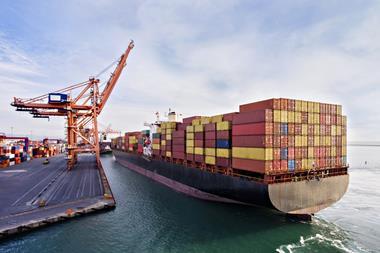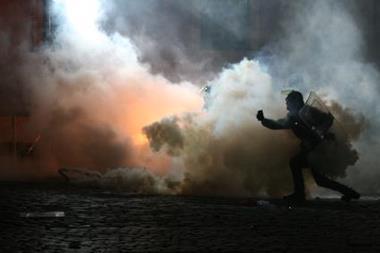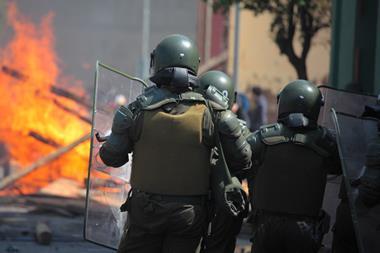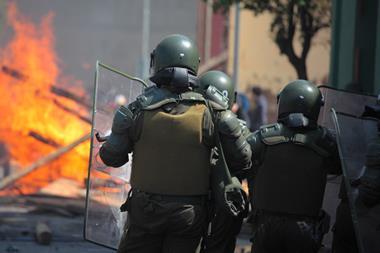French risk managers came into the Ukraine crisis better prepared after COVID, but fatigue is also setting in
Amrae president Oliver Wild says French risk managers were more resilient coming into the current geopolitical crisis, but acknowledged some fatigue was inevitably setting in after two years of the global pandemic.
Speaking to StrategicRISK, he explains the COVID experience has given crisis cells “better reflexes” in how they manage their organisation through a crisis.
“All the different functions you have around a table have improved and I would say people are more resilient and have better reactions.”
Certainly, the experience of supply chain disruption over the past two years has helped many companies to re-evaluate their approach. However, the impact from the War in Ukraine will be on the availability of goods and commodities, including gas and wheat.
“There’s a lot of discussion around supply chain and the transport issues,” explains Wild, who is also group chief risk and insurance officer at Veolia. “Although some of the risk managers would have learned the experience of COVID - and the fact you had new frontiers built - you are locked off from key sources of supply of certain products.”
Impending commodity crisis
The dependency of many European countries on Russian gas is an issue that cannot be overcome in the short term without climate transition implications, he warns.
Meanwhile, there is the threat that a cereal shortage could cause social unrest and disruption in North Africa later in the year. One of the triggers for the Arab Spring was the rising cost of commodities, including wheat, reminds Wild.
“It is a tragic situation in Ukraine, but it is an economic war as well and we’re only seeing the tip of the iceberg of that,” he says. ”Many countries have been under great economic pressure because of the last two years of COVID.”
Do I stay or do I go?
From a sanctions perspective, risk and compliance managers are potentially faced with adverse reputational fallout for the choices they make now. “As a risk manager you’ll often see reputation because of the risks you’re trying to manage. But here it is a direct risk effectively,” says Wild.
Amrae members are gathering for weekly webinars to discuss the situation in Ukraine as it unfolds and sharing best practice on how to navigate the risks presented.
Whereas the initial attention was on people and safety, continuity of operations and evolving cyber threat, risk professionals are now also beginning to look at some of the medium and longer-term implications, including economic fallout and reputational aspects.
It is inevitable the geopolitical world order will shift because of Russia’s invasion of Ukraine, thinks Wild. He is hoping upcoming webinars will include insights from political risk experts to help members think through various scenarios and plan accordingly.
“Geopolitical risks were probably underestimated in the risk maps of companies,” he says. “I’m talking generally here because we’ve always had it quite high on our risk map at Veolia. And of course, now is a good time to review your risk map… once again.”




















No comments yet